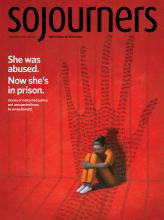APOCALYPSE IS in the air. Perhaps it was the eclipse in August, or the always accelerating churn of foreign and domestic scandal in the news, or the looming threat of climate change. Or perhaps people have always lived this way. But the world feels weighty and close to falling apart, and we start wondering how we would handle the aftermath.
When the English Fall, by David Williams (no relation), examines that possibility: a post-apocalyptic novel about a catastrophe that makes the low-tech, community-minded lifestyle of the Amish the only viable one. We witness the immediate aftermath of the modern life of the English (the Amish name for all non-Amish people) failing due to a solar storm; society is placed under immense stress without the ability to feed itself. In a fantastic choice, this is examined through the life of an Amish farmer named Jacob—how he adapts and the difficult decisions that he must make for his way of life to survive.
Read the Full Article

